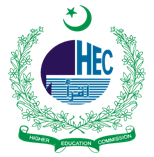Assessing the Quality of Teaching Methodology in Secondary School Physics: Evidence from Bahawalpur, Pakistan
DOI:
https://doi.org/10.5281/zenodo.17504487Keywords:
Quality Teaching, Physics Education, Secondary Schools, Teaching Methodology, PakistanAbstract
Quality teaching is a cornerstone of effective education and a central determinant of students’ achievement worldwide. In developing countries such as Pakistan, science education—especially Physics—faces critical challenges due to traditional teaching methods, limited resources, and lack of professional training for teachers. This study investigates the quality of teaching methodology in Physics classrooms across public-sector secondary schools of Bahawalpur, Pakistan. Drawing upon a stratified proportionate random sample of 115 principals, 139 teachers, and 800 students, data were collected through a validated questionnaire grounded in internationally recognized indicators of quality teaching. Confirmatory factor analysis established the reliability and validity of the instrument (Cronbach’s α = 0.85). Findings highlight stark differences in perceptions: while teachers rated their practices highly, both students and principals reported dissatisfaction, particularly regarding activity-based learning, student-centered pedagogy, questioning strategies, and formative assessment. The study stresses the immediate need for reforms in teacher professional training, integration of modern pedagogies, and provision of resources to align Physics teaching with constructivist and student-centered paradigms. The paper concludes with recommendations for policy makers, curriculum developers, and teacher training institutions.
Downloads
Published
Issue
Section
License
Copyright (c) 2025 Dr. Muhammad Khan, Dr. Farkhunda Rasheed Choudhary2, Muhammad Ali

This work is licensed under a Creative Commons Attribution-NonCommercial 4.0 International License.








